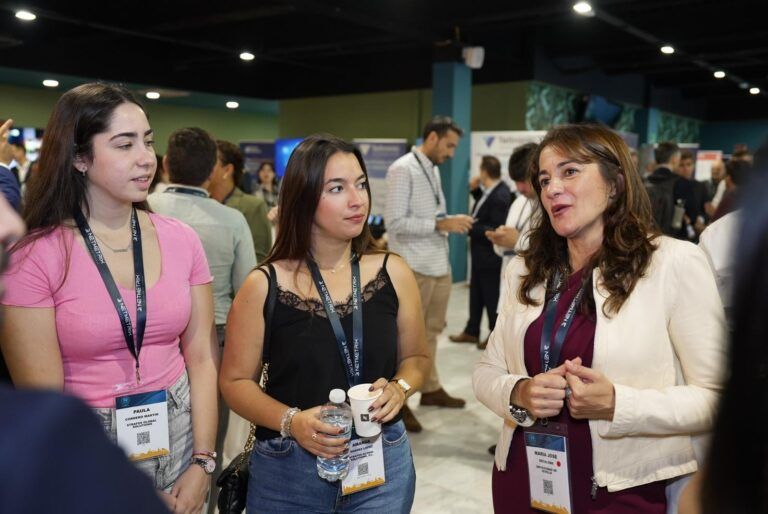
“AI is feeding on male and not so much female ‘voices’ and that will end up being a problema”
- María José Escalona, professor in the Department of Computer Languages and Systems at the University of Seville, made a strong call on the gender gap in technology, cybersecurity and Artificial Intelligence.
- The ‘Cyber Day’, a day dedicated exclusively to cybersecurity and Artificial Intelligence, closed the in-person sessions of the eighth edition of the 5G Forum.
- The 5G Forum continues with two virtual online sessions on Thursday 15 and Friday 16 May via ‘The Observatory’.
The 5G Forum continued on Wednesday 14 May with the celebration of the ‘Cyber Day’, a day devoted entirely to cybersecurity, in which María José Escalona, professor of the Department of Computer Languages and Systems at the University of Seville, took a leading role.
The specialist made a strong call on the gender gap in technology before addressing the challenges in technological defence posed by the ongoing smart revolution and the one to come with the advancement of artificial intelligence. “There are cultural and social factors that steer girls away from STEM from an early age,” Escalona warned, noting that this lack of diversity poses a serious problem for the development of cybersecurity and AI. “Unfortunately, the female presence in tech careers is still low, at around 12%. And it’s a problem of information and culture. Girls from a young age think that STEM is a man’s world”.
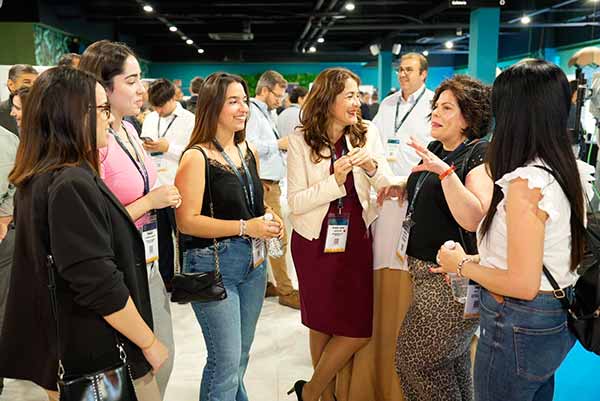
In addition to sharing this message, the researcher outlined the current and future challenges of defence in an environment increasingly dominated by intelligent technologies. “If we are having security problems at the first level of AI we encounter, imagine what is to come with its advance,” said Escalona, who insisted that “technology is not the end, but the means“; hence she advocates integrating cybersecurity from the development phase and not relegating it to the final phase of projects. “We can implement all the cybersecurity we want, but if we do not implement a strategy, it is useless.
On AI and the gender gap, she concluded with this message: “The lack of gender diversity in Artificial Intelligence can lead to social problems and bias in automated systems. AI is being nurtured by male and not so much female ‘voices’ and this will end up being a problem”.
Also participating in this ‘Cyber Day’ was María de Miguel, Director of the Telecommunications Security Division of the Subdirectorate General for Digital Security of the Ministry for Digital Transformation and the Civil Service, who spoke about the Security Operations Centre (SOC 5G), a public centre to oversee regulatory compliance in secure 5G mobile networks that will be up and running by the end of 2025. “Its functions are to provide operational support, training and advice; development of 5G crisis and contingency management plans; certification and standardisation; and R&D&I research and development to anticipate, prevent and improve incident response in the security of 5G networks and services”, he said.
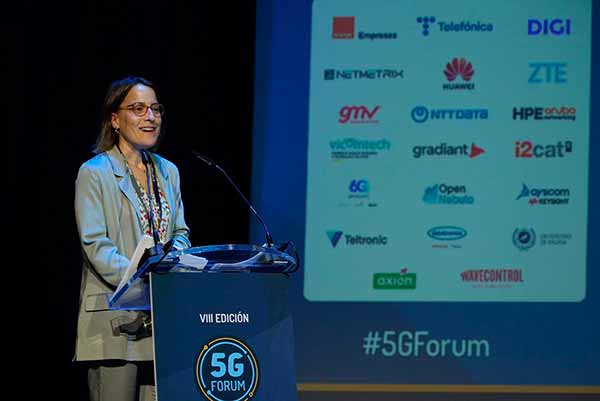
“It is a centre in which public and private entities will collaborate with numerous benefits for citizens”, said María de Miguel, who stressed the Ministry’s efforts to provide tools to help obligated parties comply with regulations regarding the security of 5G Networks and Services.
Pilar Sancho, prosecutor specialising in cybercrime in Cadiz, gave a comprehensive overview of the most common offences in the field of cybercrime, real cases, regulations and legislation. According to data from 2023, “judicial proceedings for cybercrime were 23,486 and more than 498 proceedings, which means an increase of 9% compared to 2022”. These data make it clear that “the evolution of cyber-attacks is increasing exponentially”. “Cybercrime in Spain and in the world is on the rise, and not only in volume, but also in sophistication”, he warned, before going on to recommend actions to tackle this threat, such as reinforcing resources, promoting laws, establishing agile legal content, promoting massive digital education campaigns from an early age, developing institutional intelligence, encouraging secure channels for reporting and consolidating stable alliances with technological platforms.
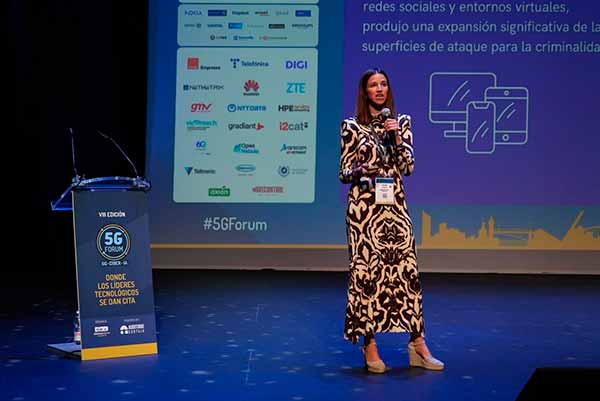
Cybersecurity, a business obligation
Juan Miguel Pulpillo, expert and coordinator of the Centre for Industrial Cybersecurity (CCI), spoke about cybersecurity as a legal requirement. “Industrial cybersecurity is the shield that protects our operations in an increasingly interconnected and vulnerable world”, warned the expert, who stressed that “industrial cybersecurity is not only about protecting data, but also about protecting factories, infrastructures and human lives”.
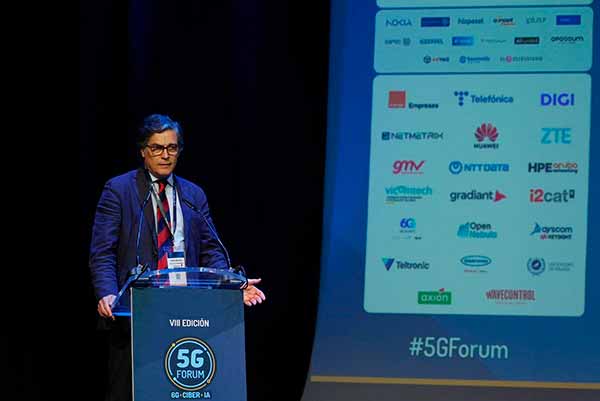
Gonzalo Temes, Director of Digital Solutions at MasOrange, focused his talk on Distributed Denial of Service (DDoS) attacks that cause legitimate people who have use of a range of data to lose access through volumetric, protocol and application attacks. “Cybercrime is a business with very specific, effective, untraceable, untraceable, low-cost and buyable characteristics , which means that no prior technical knowledge is required”, he said.
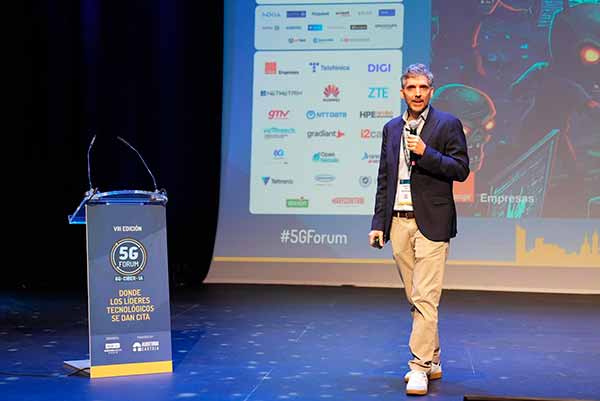
José Capote, Head of Cybersecurity and Privacy at Huawei Spain and Portugal, spoke about security configuration in 5G networks. “To ensure cybersecurity, it is necessary to manage security in operations and maintenance and product security,” said the specialist.
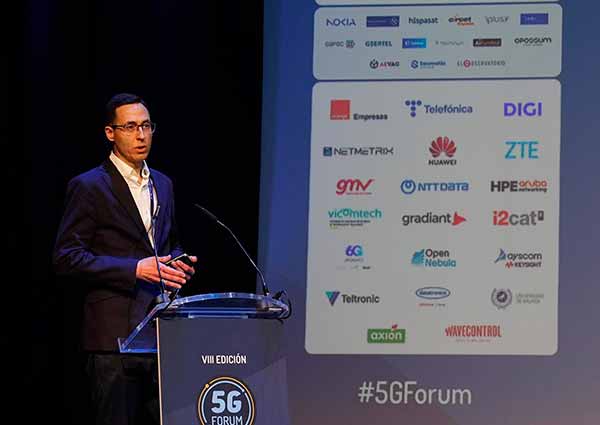
Joel Zaragoza, CTIO and director of services at Netmetrix, said that “Artificial Intelligence is facilitating the personalisation of attacks”, although one of the biggest breaches of intrusion is the user. “Human error is dominant due to lack of training,” he explained.

Cybersecurity and Artificial Intelligence
The third day of the event closed with two panels dedicated to cybersecurity and infrastructures. María Medina, CEO of Medina Media Events, moderated the panel on the current panorama of digital security in Spain from the private sector, with the participation of María del Pino González-Junco, Cybersecurity Alliances Manager, Managing Director for Charter of Trust at Siemens, who was “moderately optimistic about cybersecurity in Spain”. “Nowadays everyone is talking about cybersecurity because there is an awareness and companies are investing more and more in cybersecurity, although we are far from the major powers,” he warned. Arancha Jiménez, VP – Head of Cybersecurity Services and Products Iberia at Atos, said that “receiving many attacks boosts our resilience”. “We have evolved and the best thing is that citizens are already wary of some of the risks they are exposed to.
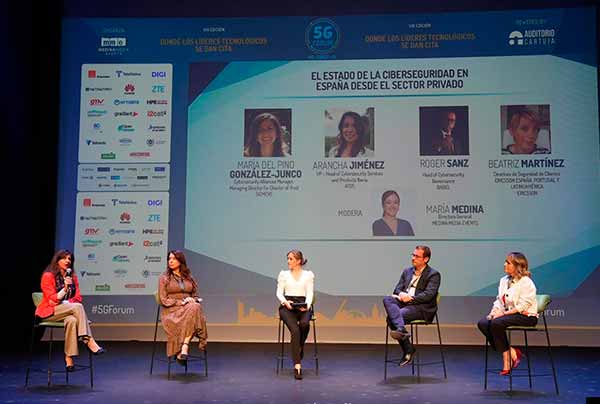
Roger Sanz, Head of Cybersecurity Governance at Babel, stressed that “AI is one of the keys to cybersecurity” and defended the need to “understand the future of cybersecurity, an area in which we are going to encounter new threats and in which there is a long way to go in terms of training”. For her part, Beatriz Martínez, Director of Customer Security at Ericsson Spain, Portugal and Latin America, said that “threats are increasing, but our responses are more sophisticated” and pointed out that “AI is a tool, not a threat”.
Manuel Ortigosa, Dean of the Official Association of Telecommunications Engineers of Western Andalusia and Ceuta, moderated the panel ‘Infrastructures and Tools to Support the Deployment of 5G’. Adolfo García, Head of the Operations and Telecommunications Sub-Directorate of the Digital Agency of Andalusia, advocated the “need to simplify procedures” while David Humanes, CTO of Atrebo, indicated that “passive infrastructure is more important than active equipment”. Alberto Contreras, Director of Networks and Infrastructure at Avatel, pointed out that “we use AI focused on the customer experience, combining personalised attention with the use of AI to help customers make the right decisions”. Finally, Juan Manuel Quijada, CEO of Stratos, noted the “use of AI for process optimisation” as part of their goal to help companies make decisions and optimise processes that cannot be done manually.
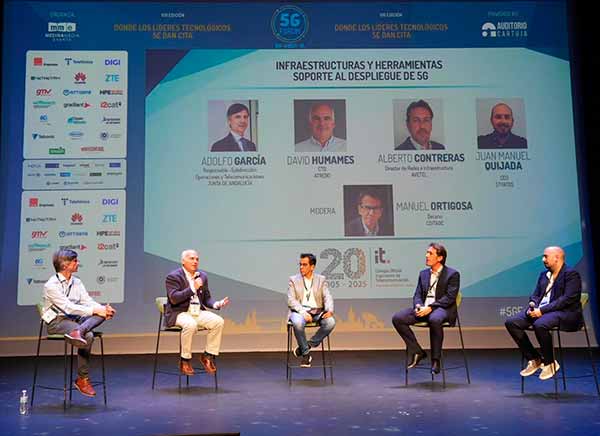
The Cartuja Auditorium -managed by Yventu-, located in the Cartuja Science and Technology Park, hosted the third and final day in person, which gave way to the two virtual sessions in online format that can be followed through The Observatory on Thursday 15th and Friday 16th.
Exhibition area with demonstrations
The event included an exhibition area during the on-site sessions at the Cartuja Auditorium from 12 to 14 May. MasOrange was a pioneer in deploying a 5G Advanced network with higher capacity, lower latency, immersive communications, massive connectivity and more intelligent and integrated ground-orbit networks. Telefónica had three demonstrations during the three on-site days that bring technological innovation closer to everyday life: an exhibition drone, virtual reality glasses combined with a smart helmet, a Xiaomi robot and a robot dog powered by 5G technology and with cross-functionality.

Secmotic presented Seclive, a solution designed to improve safety in the workplace through the use of computer vision and technology. Vicomtech presented several examples of immersive experiences that combine 3D video and extended reality (XR) technologies as a sample of what will be possible with the mobile networks of the future, among others. Wavecontrol shared during these days MonitEM-IoT, a solution that allows exhaustive control of human exposure to electromagnetic fields, ensuring that technological advances do not impact on public safety.
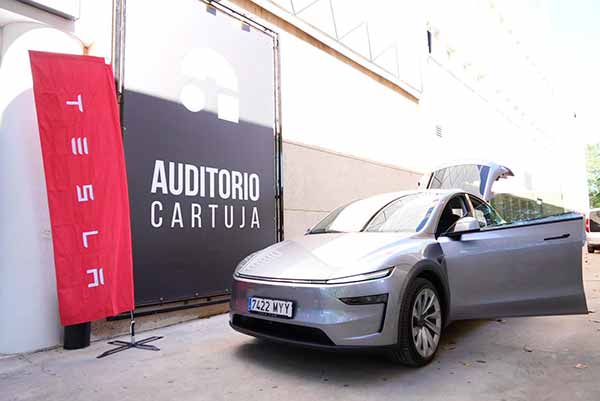
SAPEC demonstrated how a 5G private network can be deployed in less than twenty minutes, configured and managed. TESLA offered the possibility to enjoy several smart cars and experience driving them on a closed circuit. In addition, exclusive demonstrations were offered by leading companies such as GMV, Gradiant, OpenNebula, Ayscom, Teltronic, Axion, Nokia, Rohde & Schwarz, Kenmei and AIFunded, as well as the University of Malaga and ‘El Observatorio’ by Medina Media Events.
Successful participation
A total of 87 speakers, 40% of whom are women, discussed innovation, projects and 5G deployment both in Spain and internationally. European, American and Asian experts and leaders present the latest in 5G technology, Artificial Intelligence and cybersecurity, and discuss when the next generation of mobile telephony will arrive: 6G.
Telephone operators, technology multinationals, institutions, local, regional and national administrations, organisations, universities and leading companies in the telecommunications sector, totalling 70 entities from the national and international scene, make up a top-level agenda. Participants include the country’s main operators – MasOrange, Telefónica, DIGI and Vodafone – together with other leading multinationals in the sector.
All the conferences are available for on-demand viewing through ‘El Observatorio’, the digital platform of Medina Media Events, where each conference will be available 24 hours a day, 365 days a year, free of charge.
The eighth edition of the 5G Forum is organised by Medina Media Events and is supported by Orange, Telefónica, DIGI, Netmetrix, Huawei, ZTE, GMV, NTT DATA, HPE – Aruba Networking, Vicomtech, Gradiant, i2CAT, OpenNebula, Ayscom, Keysight, Teltronic, Datatronics, Oracle, University of Málaga, Axión, Wavecontrol, Nokia, Rohde & Schwarz, Hispasat, Circet, Iplus|F, Dihbu, SAPEC, Gsertel, Kenmei, Ingenalia, AIFunded, Opossum, AEVAC and Secmotic, among others.
Today, day four, virtual first
On Thursday 15 May, the fourth day of the 5G Forum will be held, the first session in virtual format through ‘The Observatory’. Ángel García Castillejo, Vice President of the CNMC Comisión Nacional del Mercado de la Competencia; Angélica Sánchez, Portfolio Brand Director of MasOrange; Víctor Pascual, CTO of ZTE for Spain and Portugal; Ignacio Briones, Coordinator of the Cybersecurity Operations Centres Area of the @CCN-CERT National Cryptologic Centre; Germán Martín, Application Engineer at Rohde & Schwarz; and Carles Antón Haro, member of the Board of Directors of the 6G Smart Networks and Services Industry Association, Chairman of the 6G-IA Test Working Group and Director of European Programmes and Industrial Contracts at the Centre Tecnològic de Telecomunicacions de Catalunya (CTTC), among others.